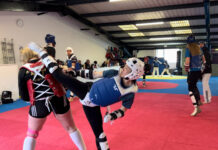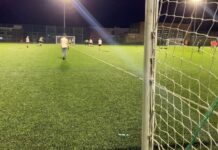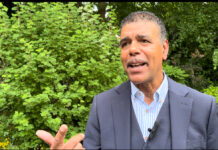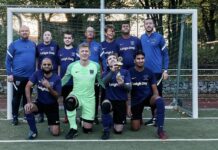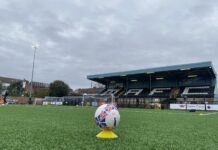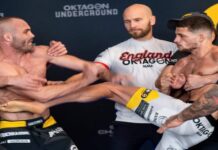Anyika Onura has revealed her battle with racial abuse growing up in Liverpool and throughout her track career.
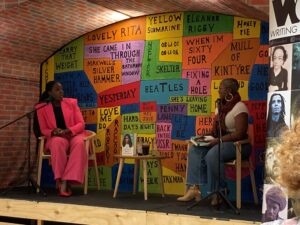
The Olympic bronze medallist, who was raised in Dingle, has decided to share her story now she has retired in the hope it will encourage other athletes to come forward who feel they have been mistreated.
Although she was able to win medals all over the world, it was never easy for Onuora. She said: “I’ve had moments in my life where I did think about ending it, it really did get that bad.”
“I just had to put on a brave face and a smile to get through it all and compete. But it definitely took a massive toll on my mental health.
“It was my mindset that got me through it, I just wanted to be the best in the world, and I wasn’t going to let anything stop me. I was so focused on that and training that I compartmentalised those memories and just focused on the races.”
During her upbringing in the city, Onuora and her family dealt with racist abuse, consisting of racial slurs, being spat at and bricks thrown through their windows. It eventually got too much for her family and they decided to move to Wavertree. However, she still had to deal with racial abuse throughout her career and felt as if she couldn’t speak out.
Onuora, who was promoting her autobiography My Hidden Race, said: “Whilst training in Italy, a woman saw me and started screaming from her window. She was yelling at me, telling me to ‘get out’ repeatedly and ‘to go back to where I came from’.
“She then called the police on me, it was so scary, fortunately I had paperwork to prove I was there for a competition. I think if I didn’t have that, I would have ended up in jail that night.”
The sprinter has also faced racial abuse in a professional environment, away from competitions: “There was this time I had to do a shoot for a shoe company, it was a white athlete, mixed race athlete and me. They took thousands of pictures of us. It was only supposed to be two hours, but it lasted around five or six. When the campaign was released, they only used images of the other two and they didn’t even tell me I was going to be left out.
“That really hurt me, you begin to question yourself. I was thinking that I wasn’t good enough and the feeling of being undesirable. It was also the fact they thought they could just waste my time like that, like it was nothing.”
The runner can now look back on these traumas and talk openly. She wants young black athletes to be able to stand up and speak out when they face injustice and to know that they can be heard.
3 time Olympian Anyika Onuora is with us tonight at @WaterstonesLPL!
Discussing her new book 'My Hidden Race' with Ngnunan Adamu, this event is sure to be unmissable
📅 6.30pm, TONIGHT!
🎟️https://t.co/N26rUqz5yq@annyonuora @NgunanAdamu pic.twitter.com/khxgkiKWwO— Writing on the Wall (@wowfest) October 20, 2022



